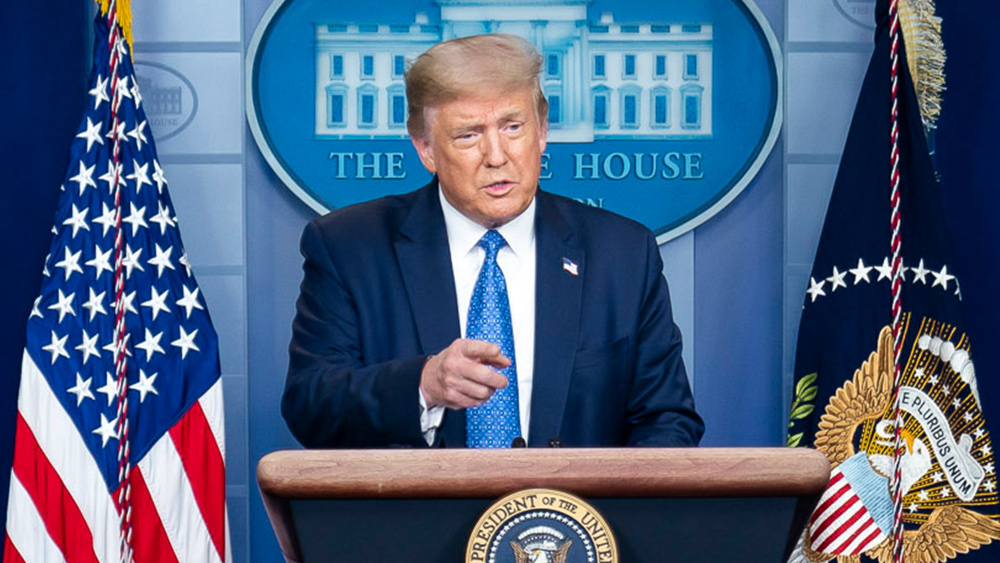Many pharmaceutical and biotechnology companies that used now-defunct Silicon Valley Bank are firing workers left and right
03/14/2023 / By Ethan Huff

It might not seem like all that big of a deal to the average person for Silicon Valley Bank (SVB) to go under, but it actually is a really big deal.
The 18th largest bank in the United States, SVB is best looked at as the next domino after FTX to fall – and before that it was Evergrande. One by one, the rickety toothpicks that hold up the globalist-controlled financial system are snapping – and the contagion that results from it will be immense.
Janet Yellen and the rest of her tribe have come to the rescue, temporarily, by breaking the Federal Deposit Insurance Corporation’s (FDIC) rules concerning uninsured deposits. They are doing this to bail out Silicon Valley corporations and the venture capitalist vultures responsible for it.
Less than three percent of account holders at SVB had under the $250,000 maximum deposit limit for FDIC coverage. Some 97 percent of account holders had more than that at SVB, which just goes to show the type of person and entity that banks at SVB.
Had SVB been some local community bank for the average American, chances are that Yellen would have said “tough luck.” However, because the Wall Street crowd banked at SVB, they had to be bailed out quickly to maintain their vast, ill-gotten riches at the public’s expense. (Related: Check out the Health Ranger’s coverage of the “non-bailout bailout” of SVB and the temporary aversion to a total collapse that has commenced.)
In terms of assets, SVB is America’s second-largest bank ever to fail
While 18th on paper, SVB is actually the nation’s second-largest bank based on assets held – the first being Washington Mutual (WaMu), which collapsed during the infamous 2008 financial crisis.
There is also a lot of exposure to SVB among tech and other “progressive” industry players, including the following:
• USDC, a cryptocurrency stablecoin operated by Circle, which had SVB as one of its six banking partners. Just 25 percent of USDC reserves are held in cash at Circle.
• ROKU (Roku), which had 26 percent of its cash, or $487 million, parked at SVB.
• BLOCKFI (BlockFi), which had $227 million in “unprotected” funds held at SVB. According to a bankruptcy document, BlockFi may be in violation of U.S. bankruptcy law.
• RBLX (Roblox), which had $3 billion in cash and securities held at SVB.
• DNA (Gingko Bioworks), a wholly-owned subsidiary of Zymergen Inc. that held about six percent of its cash, or $74 million, at SVB.
• RKLB (Rocket Lab USA), which had about $38 million in its accounts at SVB.
• LC (Lending Club) had about $21 million held at SVB, but this amount is not material to the company’s liquid position or capital levels, according to the company.
• PAYO (Payoneer), which held less than $20 million of its approximately $6.4 billion in cash at SVB.
• PTGX (Protagonist Therapeutics) held just $13 million at SVB as of March 9.
• ACHR (Archer Aviation) entered into a $20 million loan with SVB in 2021, $10 million of which is due for repayment in 2023.
• COHU (Cohu), which held about $12.3 million at SVB.
• IGMS (IMG Biosciences), which held less than $5 million at SVB.
• RYTM (Rhythm Pharmaceuticals) maintained SVB accounts with approximately $3.4 million in them.
• SYRS (Syros Pharmaceuticals), which disclosed accounts at SVB with mostly balances of less than $250,000. Just one account had above the FDIC limit with $3.1 million in it.
• EYPT (EyePoint Pharmaceuticals) held just single-digit millions of cash at SVB.
• ATRA (Atara Biotherapeutics) had an account at SVB with about $2 million in it.
• ISEE (Iveric Bio) had low single-digit millions in accounts at SVB, according to reports.
The latest news about the ongoing implosion of the current global economic order can be found at Collapse.news.
Sources for this article include:
Submit a correction >>
Tagged Under:
Big Pharma, biotechnology, bubble, chaos, collapse, contagion, debt bomb, debt collapse, economic riot, finance riot, market crash, money supply, pensions, pharmaceutical fraud, risk, Silicon Valley Bank, SVB
This article may contain statements that reflect the opinion of the author
RECENT NEWS & ARTICLES
COPYRIGHT © 2022 FinanceRiot.com
All content posted on this site is protected under Free Speech. FinanceRiot.com is not responsible for content written by contributing authors. The information on this site is provided for educational and entertainment purposes only. It is not intended as a substitute for professional advice of any kind. FinanceRiot.com assumes no responsibility for the use or misuse of this material. All trademarks, registered trademarks and service marks mentioned on this site are the property of their respective owners.


















